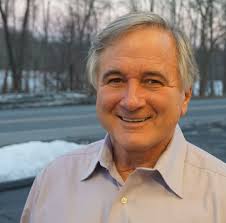Use of Force, Racial Bias Focus at Pleasantville Police Reform Meeting
How police officers are trained to use force or exercise restraint was the key topic last week at the third Pleasantville Police Reform meeting.
The live-streamed forum also addressed the culture of law enforcement, specifically inclusion and racial bias.
Pleasantville Police Chief Erik Grutzner said during his 50-minute presentation on the department’s use of force, racial bias and communication skills that the George Floyd killing prompted his department to embark on new training modules. The system hasn’t always been fair, he acknowledged.
“It’s not an individual officer, it is about systemic issues that are out there,” Grutzner said. “After the George Floyd killing, I put out a memo that said ‘This might not be your fault, but it is very much your problem.’”
Anti-bias police training includes implicit and explicit bias.
“Micro aggression is a term we hadn’t heard in law enforcement but has now taken center stage as far as equity, efforts and fairness in policing and procedural justice,” Grutzner explained. “We need to put aside our implicit biases and find a way to recognize them, discard them and treat everyone the same.”
At the beginning of the meeting, Mayor Peter Scherer mentioned the tragic killing 10 years ago of Black Pace University student athlete Danroy “DJ” Henry Jr., 20, who was unarmed and fatally shot by former Pleasantville police officer Aaron Hess. The case resulted in a number of lawsuits but a grand jury did not bring criminal charges against Hess or the other officers at the scene.
“That obviously is an event that was a tragedy for everyone involved,” Scherer said.
But he cautioned against residents focusing on that or any particular incident.
Later in the evening Pastor Susan Chupungco of Pleasantville’s United Methodist Church not only mentioned the Henry killing but also Pleasantville police officer Peter Burns. In 2014, Burns was suspended after he posted racist posts about President Barack Obama on his Facebook page.
Chupungco called for reconciliation and healing between the police department and the community.
“It seems like there are still open wounds around two very major specific issues and that people do not feel like there has been transparency,” Chupungco said. “I do not want to go through this process and not create a space where those can be talked about.”
Village trustees Nicole Asquith and David Vinjamuri, along with Scherer and Grutzner, invited Chupungco and the public to speak in smaller, break-out groups to address specific issues of concern.
Grutzner said when he spoke to the community there were issues raised about officers using inappropriate force, using force when they weren’t authorized to do so and when there was no need to use force.
“We do everything in our power to train officers to respond appropriately,” he said. “When an officer uses too much force, we do have reporting and review standards in place.”
If an officer is accused of using unwarranted force, Grutzner encouraged the public to come forward.
“In general, we do have a great deal of faith in the officers we have out there and we try to put them in situations where they realize their actions are important and carry a lot of weight,” Grutzner said.
Pleasantville resident Erin Ballard, citing the George Floyd and Eric Garner cases, asked if officer training includes de-escalation or practicing physical restraint after force has already accelerated.
“We train our officers to constantly reassess, to be judicious and move down as quickly as possible,” Grutzner said. “Tragically, around the country there are places where it was the lack of stopping the use of force (where) problems really happen.”
Pleasantville police are trained online and in-house in small groups of four or five officers, the chief said. Updated logs and rosters record all training sessions.
Chupungco told The Examiner she understands the community is still building a relationship with Grutzner and Scherer regarding the village’s department.
“I want to see them succeed in this, but there are gaps,” Chumpungco said. “There is a language among those doing anti-racism and anti-bias work. I would like to see them speak that language. There’s more work to be done.”
The next police reform meeting in January is expected to cover how police complaints are handled and the department’s review process.
The public is invited to submit comments to policereform@pleasantville-ny.gov/.

Abby is a local journalist who has reported on breaking news for more than 20 years. She currently covers community issues in The Examiner as a full-time reporter and has written for the paper since its inception in 2007. Read more from Abby’s editor-author bio here. Read Abbys’s archived work here: https://www.theexaminernews.com/author/ab-lub2019/

